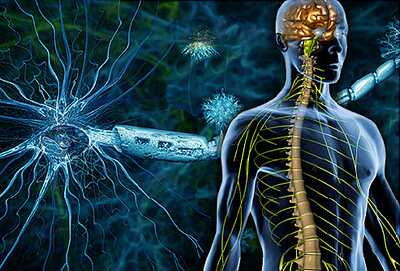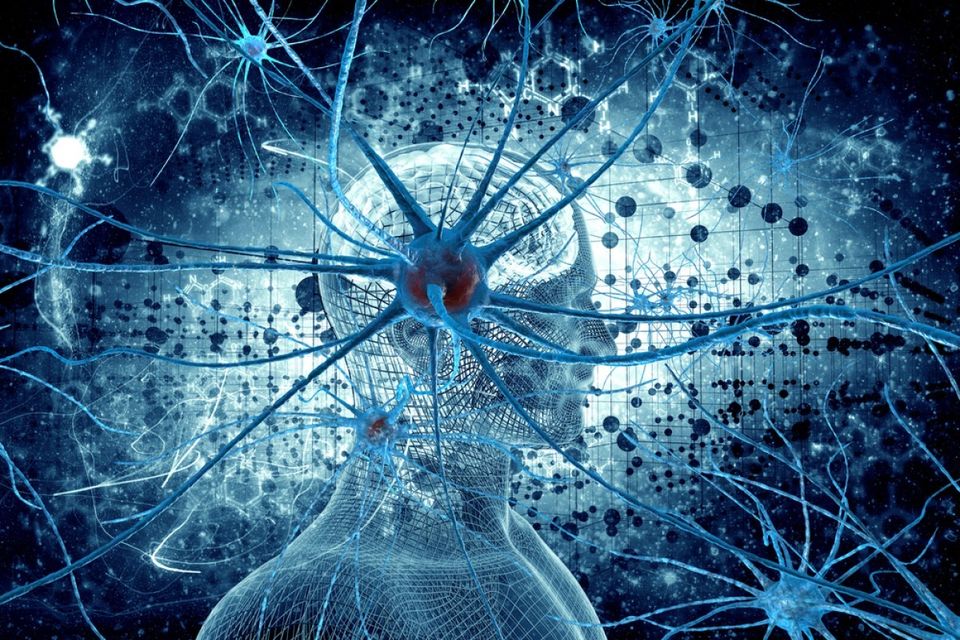Massage for Multiple Sclerosis

Multiple sclerosis is an autoimmune, inflammatory condition where there is inflammation & degeneration of the myelin sheath covering the nerves. MS is a progressive CNS (central nervous system) disease that affects how the brain can control bodily functions eg. walking. There may be periods of remission, but following each inflammatory response, new scar tissue forms, which further damages neurological function, affecting the spinal cord, brain stem & cranial nerves. While often seen as a contraindication, massage can be beneficial to those with multiple sclerosis, reducing stress, relieving pain & maintaining function.
SIGNS & SYMPTOMS OF MS
• fatigue, weakness & spasms
• changes in sensation (paraesthesia, reduced sensation, numbness)
• loss of coordination, muscle stiffness, difficulty walking
• loss of cognitive function
• depression
• Lhermitte’s sign (electrical sensation when neck is in flexion)
• digestive disturbances
• optic neuritis
• sexual and urologic dysfunction
• Benign MS (1 flare only)
• Malignant MS (rapidly progressive)
• relapse and remission
MS TREATMENT
• dependant on symptoms
• steroids
• immune suppressants
• exercise
• physical therapy for maintenance
BENEFITS OF MASSAGE FOR MS
• PAIN RELIEF —by reducing the inflammatory response & improving range of motion. MS patients may also experience facial pain or burning sensations in the limbs due to their sensory nerves being damaged, and this impacts on functioning. By applying pressure on painful areas, massage can reduce pain
• IMPROVED FLEXIBILITY/REDUCED MUSCLE & JOINT STIFFNESS - by improving the blood flow to stiff muscles & joints, massage can improve mobility & functioning by reducing healing time. In this way massage may also help to sow down progression of the disease. Muscle weakness & loss of mobility may cause muscle atrophy which causes further deterioration but, by increasing the circulation of oxygenated blood, massage can help prevent atrophy & improve energy levels.
• REDUCED SPASTICITY – muscle spasms occur in MS due to repeated contraction of the muscles, causing difficulty in walking, poor balance & coordination, & reduced fine motor movements. Massage can relax muscles, reduce tremors & therefore, improve range of motion.
• STRESS REDUCTION– stress often triggers MS symptoms, but massage will offer relaxation & reduce anxiety & fear, associated with MS.
• STIMULATES CIRCULATION — massage improves blood flow at each level through specific techniques eg. frictions on superficial veins, petrissage for deeper arteries & veins, & effleurage for capillary dilation
• PREVENTION OF PRESSURE SORES — may help prevent pressure sores through circulatory stimulation but massage is contraindicated if pressure sores are already present.
• IMPROVED BOWEL MOTILITY - relief of constipation by aiding the peristaltic movement
CAUTIONS:-
• OEDEMA —accumulation of excessive watery fluid in cells, tissues or body cavities, maybe due to heart or kidney disease - the reason for the oedema should be identified before massage, & if resulting from immobility, mild massage may help
• PREGNANCY – consultation with doctor advised
• ULCERS OR ENLARGED LIVER/SPLEEN
• RECENT INJURY
• DIAGNOSIS OF CANCER/HEART DISEASE/ARTHRITIS
CONTRAINDICATIONS:-
• OSTEOPOROSIS —possibly due to corticosteroid use and restricted mobility, people with MS generally have lower bone mass & are at higher risk of fractures
• DECUBITUS ULCERS – localised massage is contraindicated
• Any techniques/modalities which may cause fatigue
• Any painful techniques eg.frictions or vigorous work will increase firing of the sympathetic nervous system, responsible for the fight or flight response, & also promotes fatigue • heat application over a large area affect nerve conduction, increase risk of nerve damage or burns in those with reduced sensitivity, & may cause fatigue, therefore hot stone massage should not be done
• deep tissue techniques are contraindicated where there is reduced sensation

MASSAGE TREATMENT FOR THE CLIENT WITH MS:CONSIDERATIONS FOR THE THERAPIST
• the type of massage therapy is dependant on the intensity & stage of MS. Massage should be avoided in the acute stage to avoid worsening pain.
• deep tissue massage is good for relaxing tense muscles and decreasing pain
• trigger point therapy is beneficial in MS, where maybe deep techniques can’t be tolerated
• Swedish massage is much more gentle & advised in the initial or end of acute stage, as even slight pressure may cause pain
• Massage therapy is more appropriate in remission
• Avoid hot/cold sensations as MS patients have poor tolerance for temperature changes
• watch for inaccurate sensations
• avoid/be cautious in numb areas
• spend time on positioning to ensure comfort
• use manual lymphatic drainage if there is oedema
• passive ROM of joints may improve flexibility without needing to use deeper techniques, using a slow prolonged stretch to ease contractures
• stick to kneading/stroking/vibrations
• The Golgi tendon organ (GTO)in spastic muscles - a sensory receptor organ at the origins/ insertions of skeletal muscle fibres, that detect changes in muscle tension. It provides the sensory component of the Golgi tendon reflex.
RESEARCH FINDINGS:-
• relief of anxiety & depression
• improved mood, self-esteem & body image
• slight increase in ambulation
• improved physical & social functioning
• improved image of disease progression
• increased self-efficacy ie.belief that one can cope with challenges
• massage needs to be continued to maintain the effec
t • greater ease of bowel movements, less pain and more frequency
• improved appetite, reduced bloating, decreased sluggishness, reduced need for laxatives & improved energy levels have been suggested as potential benefits If you have MS and are seeking a massage treatment always see a registered and medically experienced therapist.
